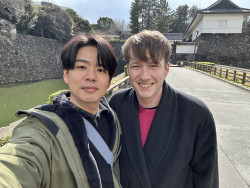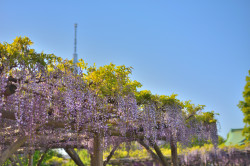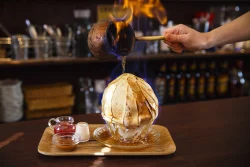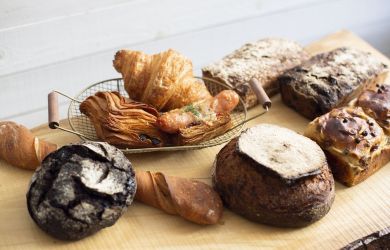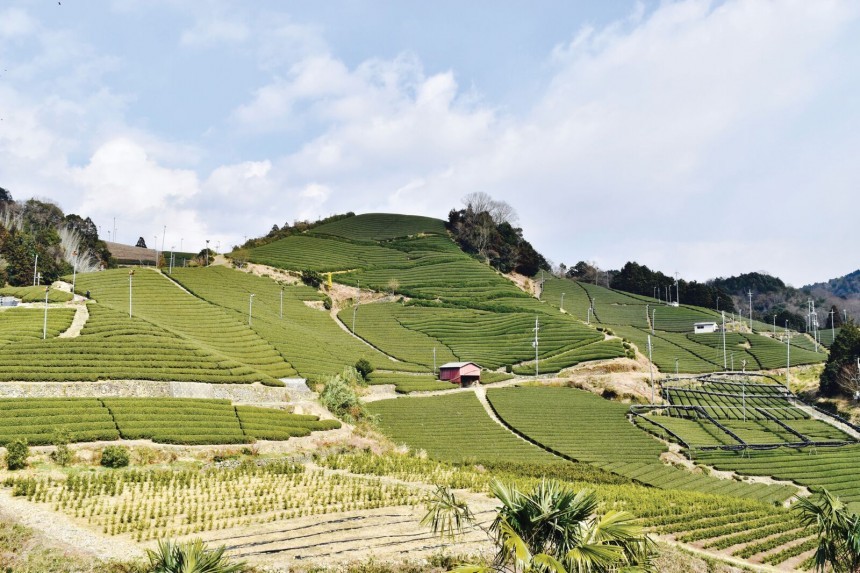
Incorporate more tea into your diet for its many health benefits with this Japanese tea guide.
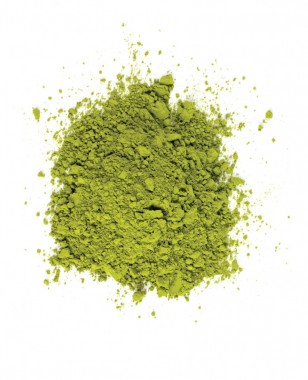
Green tea is rich in catechins, a type of antioxidant, which helps reduce cholesterol and fat. It may lower blood pressure and some studies have shown that it can help prevent cancer, viruses, heart disease and influenza.
Japanese tea is made from the leaves of the Camellia sinsensis plant. Sometimes the tea shrub is shaded, for higher grades of tea. After being plucked, the tea leaves are steamed, rolled and then dried. Tea leaves can be roasted. Adding roasted genmai (brown rice) can add toasty notes to tea. Most teas are steeped, extracting flavor from the leaves. In the case of matcha, the leaves are ground into a fine powder and whisked into the water. Consuming the powdered tea leaves is more beneficial than drinking steeped tea. So, if drinking for your health, start drinking more matcha.
Japanese tea varies from earthy brown hōjicha to a savory, umami-rich gyokuro. The most popular tea in Japan, sencha, is almost 80% of the market. Here is a list of the most common types of Japanese tea.
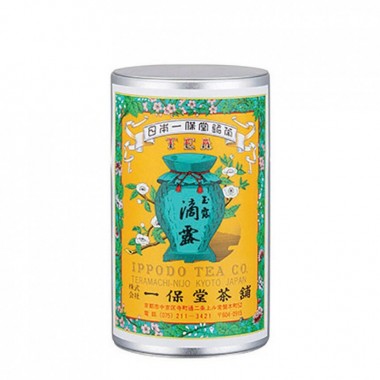
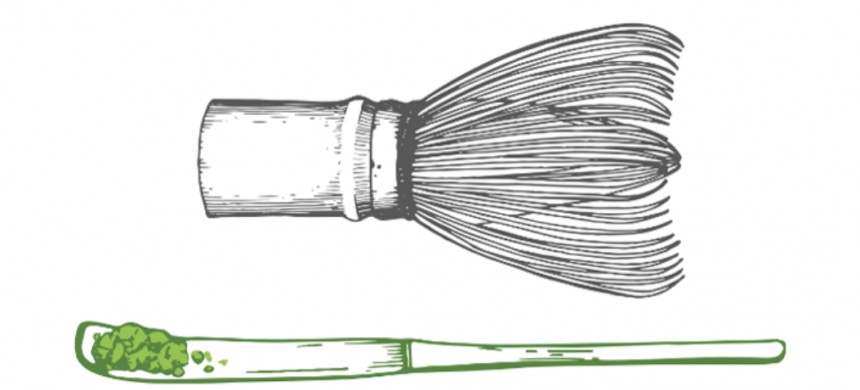
玉露 Gyokuro – a savory and round tea that is steeped in warm water and rich in umami
煎茶 Sencha – pleasant flavor with a nice balance of umami, astringency and bitterness
かぶせ茶 Kabusecha – to bring out the natural sweetness in the tea, kabusecha is shaded for a short period before being picked, has a gentle umami
抹茶 Matcha – tea leaves are powdered and whisked into hot water, better health benefits than steeped tea, flavor profile will depend on the quality (sweeter as the price rises)
粉茶 Konacha – second rank tea leaves are pulverized but not to a fine powder like matcha, often found at sushiya
深蒸し煎茶 Fukamushi Sencha – the tea leaves are steamed once before being dried, a great tea for tea novices to make at home as it can be steeped in nearly boiling water
芽茶 Mecha – made from young buds and shoots, this is a bold and rich tea
茎茶 Kukicha – stems are collected from the process of making gyokuro and sencha, it is low in caffeine and has a slightly nutty flavor
番茶 Bancha – roasted tea leaves from the 3rd or 4th picking of tea leaves, the roasting may add deep smoky notes to the tea
ほうじ茶 Houjicha – green tea leaves are roasted and become brown, this tea is low in caffeine
玄米茶 Genmaicha – roasted brown rice mixed with sencha
釜炒り茶 Kamairicha – while most tea is steamed after being picked, kamairicha is roasted in a large pan, it is light in flavor and color
Tools of the Trade
Tea pot, kyūsu 急須. Many tea pots will come with a strainer. Tea pots are made in a variety of materials. Cast iron pots may soften the water. Do check before purchasing to see if the inside is enameled or not. The enamel-lined pots will not soften the water.
Tea cup, yunomi 湯のみ. Many styles to choose from including Hagiyaki from Yamaguchi prefecture. The glaze is cracked and over the years the tea will seep into the cracks and the cups will reflect this over time.
A yuzamashi 湯ざまし will lower the temperature of boiling water to steeping temperature. It looks like a teapot without a lid and has a lip for pouring the hot water into the teapot.
Tea canister, chazutsu 茶筒. The canister helps to keep the tea leaves dry. Chazatsu can be made from wood, including cherry bark, or from metals such as tin, brass or copper.
A chasaji 茶さじ scoop is used to measure tea leaves when moving from the canister to the tea pot.
For matcha, a chasen 茶筅 (bamboo whisk) and a chawan 茶碗 (bowl). Chashaku 茶杓 is the bamboo spoon used to measure matcha. A chasen-tate 茶筅立て is a ceramic piece to store the chasen after each use that will help it to retain its shape.
Retail shops in Tokyo:
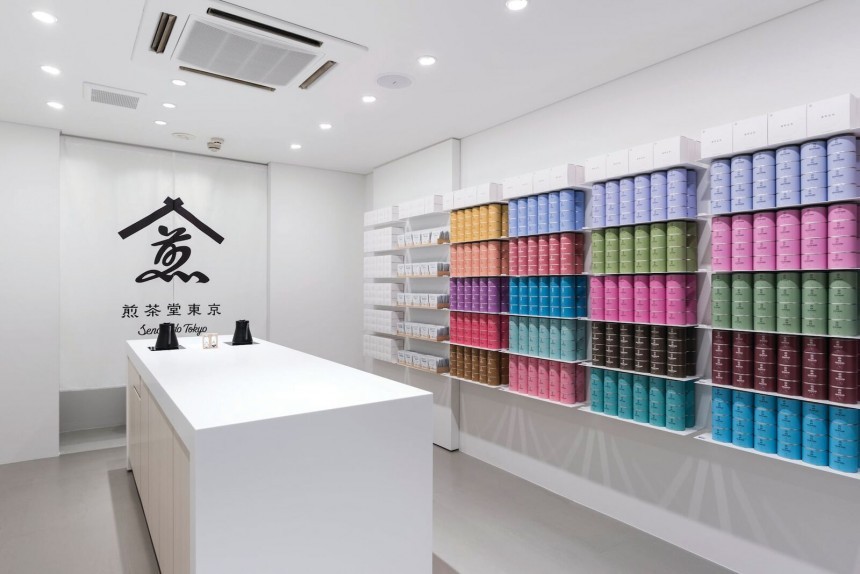
Wa no Cha Ito En
Chuo-ku, Nihonbashi Muromachi 1-4-1, Nihonbashi Mitsukoshi B1
http://itoen.co.jp/shopping/store/detail.php?id=231
Ippodo
Chiyoda-ku, Marunouchi 3-1-1, Kokusai Bldg. 1
http://www.ippodo-tea.co.jp/shop/marunouchi-tokyo.html
Uogashi Meicha
Chuo-ku, Ginza 5-5-6
https://www.uogashi-meicha.co.jp/shop/ginza/map.html
Senchado Tokyo
Chuo-ku, Ginza 5-10-10
http://www.senchado.jp



